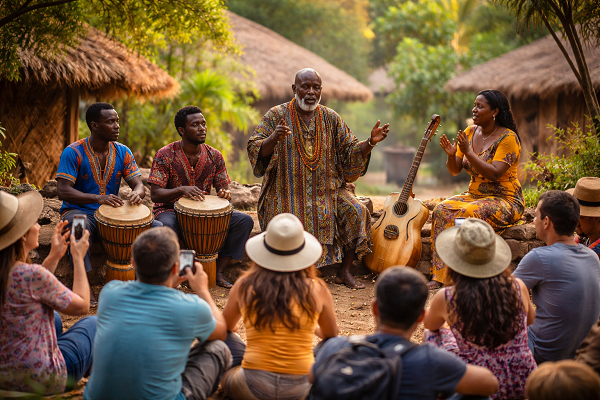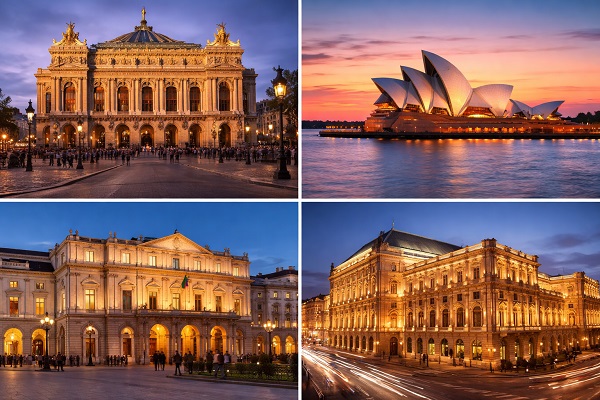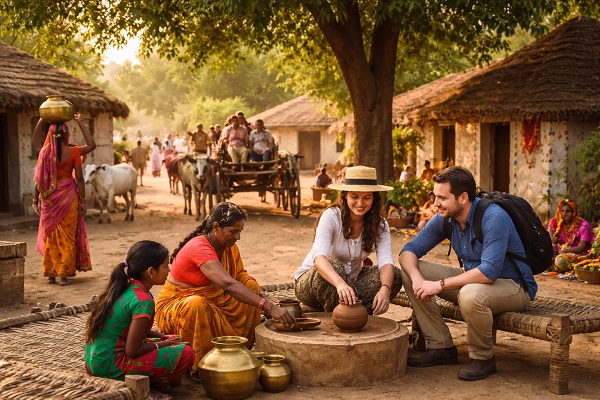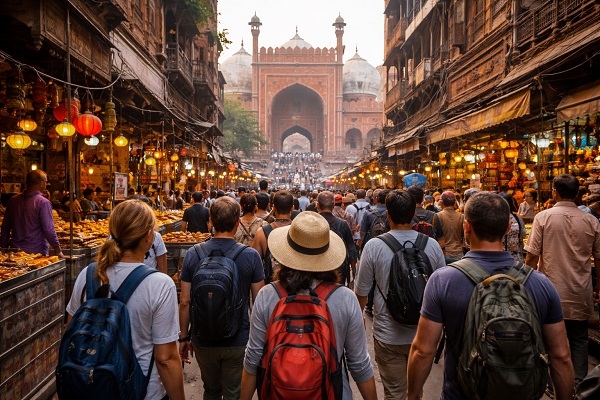Exploring the World Through Cultural Tourism: A Journey of Tradition, Heritage, and Authentic Experiences

Cultural tourism is an enriching way to explore the world, offering deep connections to the history, traditions, and values of different communities. Whether it’s wandering through ancient ruins, visiting art galleries, or participating in local festivals, cultural tourism provides a profound experience that goes beyond typical sightseeing.
Discovering Historic Landmarks
One of the most immersive ways to engage with a culture is through its historic landmarks. From the majestic pyramids of Egypt to the iconic temples of Angkor Wat in Cambodia, these structures tell the stories of past civilizations. They provide a tangible link to the cultural heritage of a region, offering visitors an opportunity to step back in time and witness the marvels of human ingenuity and craftsmanship.
For instance, the historical city of Rome offers a blend of ancient ruins, Renaissance art, and baroque architecture, providing a rich tapestry of history at every corner. Similarly, a trip to the Great Wall of China allows travelers to learn about China’s dynastic past while experiencing breathtaking landscapes.
Engaging with Local Traditions
Cultural tourism isn’t just about monuments—it’s about the people who keep traditions alive. Visiting local communities and participating in traditional practices can give you a firsthand understanding of their way of life. This could involve taking part in a local cooking class, learning traditional crafts, or attending a dance or music performance.
In India, for example, travelers can experience the colorful celebrations of Diwali or Holi, where people come together to share joy, music, and food. In Mexico, the Day of the Dead festival offers visitors a unique opportunity to learn about the rich spiritual practices that honor the lives of loved ones.
Art and Culinary Heritage
Art and cuisine are vital elements of cultural tourism. Exploring local art scenes, whether it's a contemporary art gallery in Paris or a traditional handicraft market in Morocco, gives travelers insight into the creative soul of a place. Additionally, food is a gateway to understanding the customs and history of a culture. Street food markets, local eateries, and farm-to-table experiences are some of the best ways to savor authentic dishes that reflect a region’s flavors and history.
In Italy, the culinary scene is a vital part of its identity—whether you're savoring freshly made pasta in Rome or enjoying a gelato in Florence, each bite tells a story. Similarly, in Thailand, street vendors offer travelers a taste of local life through dishes like Pad Thai and Som Tum, often cooked right in front of you.
Experiencing Cultural Festivals
Cultural festivals are an excellent way to experience the spirit of a region. They offer an immersive way to participate in the local customs and traditions. Whether it’s the lively Carnival in Brazil, the music festivals of Ghana, or the film festivals in Venice, these events celebrate local culture and offer travelers a chance to connect with a community’s sense of pride and identity.
Why Cultural Tourism Matters
Cultural tourism plays a crucial role in preserving the heritage of various regions. It encourages sustainable travel by supporting local economies and raising awareness about the importance of cultural preservation. When travelers take the time to learn about and respect local customs and traditions, they contribute to a global community that values diversity and shared knowledge.
Conclusion: The World is Waiting
Cultural tourism allows us to enrich our understanding of the world and embrace the diversity of human experiences. From ancient landmarks and vibrant festivals to delicious food and meaningful encounters, cultural tourism opens doors to a deeper appreciation of the world’s history and people.
























